第49章
Ever after this conference Goriot looked upon his neighbor as a friend, a confidant such as he had never hoped to find; and there was established between the two the only relationship that could attach this old man to another man. The passions never miscalculate. Father Goriot felt that this friendship brought him closer to his daughter Delphine; he thought that he should find a warmer welcome for himself if the Baroness should care for Eugene. Moreover, he had confided one of his troubles to the younger man. Mme. de Nucingen, for whose happiness he prayed a thousand times daily, had never known the joys of love. Eugene was certainly (to make use of his own expression) one of the nicest young men that he had ever seen, and some prophetic instinct seemed to tell him that Eugene was to give her the happiness which had not been hers. These were the beginnings of a friendship that grew up between the old man and his neighbor; but for this friendship the catastrophe of the drama must have remained a mystery.
The affection with which Father Goriot regarded Eugene, by whom he seated himself at breakfast, the change in Goriot's face, which as a rule, looked as expressionless as a plaster cast, and a few words that passed between the two, surprised the other lodgers. Vautrin, who saw Eugene for the first time since their interview, seemed as if he would fain read the student's very soul. During the night Eugene had had some time in which to scan the vast field which lay before him; and now, as he remembered yesterday's proposal, the thought of Mlle. Taillefer's dowry came, of course, to his mind, and he could not help thinking of Victorine as the most exemplary youth may think of an heiress. It chanced that their eyes met. The poor girl did not fail to see that Eugene looked very handsome in his new clothes. So much was said in the glance, thus exchanged, that Eugene could not doubt but that he was associated in her mind with the vague hopes that lie dormant in a girl's heart and gather round the first attractive newcomer. "Eight hundred thousand francs!" a voice cried in his ears, but suddenly he took refuge in the memories of yesterday evening, thinking that his extemporized passion for Mme. de Nucingen was a talisman that would preserve him from this temptation.
"They gave Rossini's Barber of Seville at the Italiens yesterday evening," he remarked. "I never heard such delicious music. Good gracious! how lucky people are to have a box at the Italiens!"
Father Goriot drank in every word that Eugene let fall, and watched him as a dog watches his master's slightest movement.
"You men are like fighting cocks," said Mme. Vauquer; "you do what you like."
"How did you get back?" inquired Vautrin.
"I walked," answered Eugene.
"For my own part," remarked the tempter, "I do not care about doing things by halves. If I want to enjoy myself that way, I should prefer to go in my carriage, sit in my own box, and do the thing comfortably. Everything or nothing; that is my motto."
"And a good one, too," commented Mme. Vauquer.
"Perhaps you will see Mme. de Nucingen to-day," said Eugene, addressing Goriot in an undertone. "She will welcome you with open arms, I am sure; she would want to ask you for all sorts of little details about me. I have found out that she will do anything in the world to be known by my cousin Mme. de Beauseant; don't forget to tell her that I love her too well not to think of trying to arrange this."
Rastignac went at once to the Ecole de Droit. He had no mind to stay a moment longer than was necessary in that odious house. He wasted his time that day; he had fallen a victim to that fever of the brain that accompanies the too vivid hopes of youth.
Vautrin's arguments had set him meditating on social life, and he was deep in these reflections when he happened on his friend Bianchon in the Jardin du Luxembourg.
"What makes you look so solemn?" said the medical student, putting an arm through Eugene's as they went towards the Palais.
"I am tormented by temptations."
"What kind? There is a cure for temptation."
"What?"
"Yielding to it."
"You laugh, but you don't know what it is all about. Have you read Rousseau?"
"Yes."
"Do you remember that he asks the reader somewhere what he would do if he could make a fortune by killing an old mandarin somewhere in China by mere force of wishing it, and without stirring from Paris?"
"Yes."
"Well, then?"
"Pshaw! I am at my thirty-third mandarin."
"Seriously, though. Look here, suppose you were sure that you could do it, and had only to give a nod. Would you do it?"
"Is he well stricken in years, this mandarin of yours? Pshaw! after all, young or old, paralytic, or well and sound, my word for it. . . . Well, then. Hang it, no!"
"You are a good fellow, Bianchon. But suppose you loved a woman well enough to lose your soul in hell for her, and that she wanted money for dresses and a carriage, and all her whims, in fact?"
"Why, here you are taking away my reason, and want me to reason!"
"Well, then, Bianchon, I am mad; bring me to my senses. I have two sisters as beautiful and innocent as angels, and I want them to be happy. How am I to find two hundred thousand francs apiece for them in the next five years? Now and then in life, you see, you must play for heavy stakes, and it is no use wasting your luck on low play."